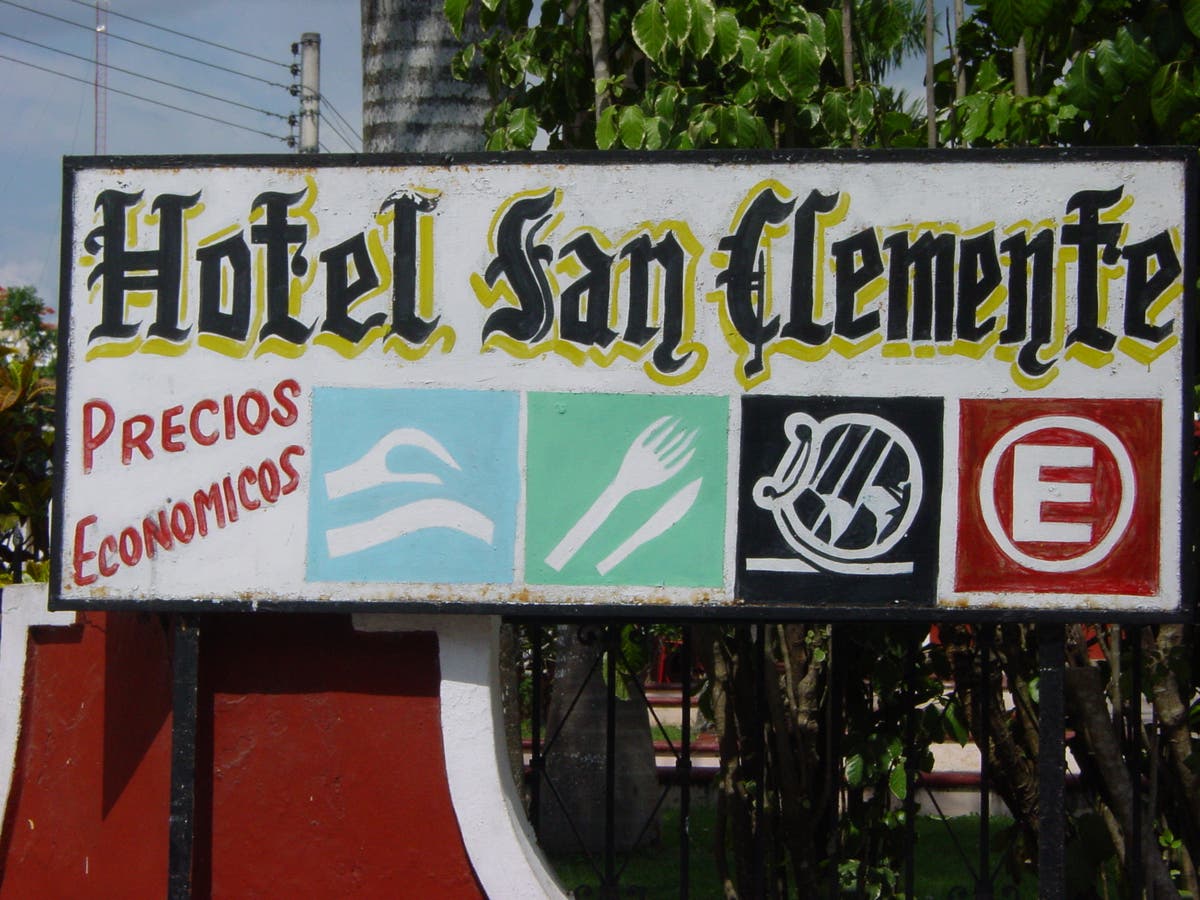“A dungeon that must have been some sort of abandoned medical facility as there was hospital beds and industrial equipment lying around the entrance” – that was what Scotland fan Rory Bradley found when he walked into the property in Germany that he had booked online for his trip to Euro 2024.
“We made our way into the property and were greeted by more industrial equipment, exposed chemicals, exposed cables and exposed pipes and to top it all off an axe that looked like something out of a murder film,” he wrote on X.
“The whole place had the vibes of a human trafficking horror film.”
Rory’s experience draws attention to the problems that can arise when you book accommodation through an online intermediary. The basic premise of these companies is that they simply provide a means for you to find and book somewhere to stay, take upwards of 15 per cent commission for their trouble, and then insist your contract is with the owner.
These are the key questions and answers.
What’s the problem?
Bare concrete floors, dangerous wiring and beds made out of cardboard – plus a random axe – sounds even less appealing than my house. The vast majority of travellers who book through accommodation websites will not experience anything untoward, and will enjoy a safe and pleasant stay. But unfortunately some people find to their dismay that the place they booked through an intermediary is dirty, dangerous or simply not as described.
The standard online middleman will insist you don’t have a contract with them – it’s with the property itself.
- Booking.com says: “When you make (or request) a booking, it’s directly with the service provider – we’re not a ‘contractual party’.”
- Hotels.com insists: “We provide our service to help you find information about travel services and to assist you in booking those travel services. It is provided to you for no other purpose.”
- Trivago warns: “Your interaction with any hotel provider and travel product provider accessed through our platform is at your own risk, and Trivago does not have any responsibility should anything go wrong with your booking.”
What does that mean in practice?
If you’ve got a problem that needs solving, the intermediary has no legal responsibility. Online sites have customer service help centres, but don’t pin your hopes on them. While they will try to assist – reputationally, it helps – if they draw a blank they can simply repeat that your contract is with the provider.
If the accommodation provider is based abroad, legal claims are much more difficult – including in the European Union since Brexit.
It is a far better plan to book a proper package holiday: flights and a place to stay in the same transaction. The company that sells you the trip is obliged to provide safe accommodation that matches the advertised description. If it turns out not to be as promised, the travel firm must solve the problem for you.
A sure indication that you have a package holiday is if you pay the provider £2.50 for an Atol certificate.
How can dodgy properties be advertised on accommodation sites?
No booking site (I hope) would knowingly list a place that is dangerous or substandard. But neither do most of them inspect properties. So if someone decides to offer accommodation that is plainly substandard there is very little you as a guest can do – it appears that for Euro 2024 some unscrupulous property owners have simply decided that they can rent out anything to desperate football fans.
The online sites generally don’t check these places out themselves, and therefore the first people to find out are the unfortunate guests.
How can I ensure this doesn’t happen to?
Personal recommendation is the best way to make sure you stay somewhere good. Failing that, go with a reputable brand of hotel. There is no point in paying upwards of 15 per cent commission to the intermediary. But during big sports events, almost anything can get pressed into service. I was in Kaliningrad for the 2018 World Cup. Such was the pressure on accommodation that someone was selling use of a two-person tent in a field nine miles from the match for £63.
Is it ever a good idea to go through an intermediary?
Small properties often use an online travel agent. They are prepared to pay 15 per cent to the intermediary because it helps with marketing and is administratively easier than doing all the “back office” stuff themselves.
But beware: I had an extraordinary experience with a hotel I booked in Paris in 2023. The property was clearly dangerous, with exposed wires and a rickety staircase that had no working light – extremely dangerous in the event of a fire.
I checked out after one night and contacted the intermediary, stressing: “I am not asking for a refund for the second night. But please send someone round from your Paris office to have a look. You shouldn’t be sending anyone here.”
Astonishingly, the company simply sent repeated “you can’t have a refund” messages – even though I had stressed I wasn’t after my money back – and kept selling the place despite the safety warning.
More mundanely, the online sites have a weird idea of what constitutes an amenity worth mentioning. One of the amenities mentioned by Booking.com for the £1,000 a night Ritz Hotel in London is toilet paper. And if you’re checking in to the 72-storey Gevora in Dubai, the world’s highest hotel, you will not need to lug their bags up the stairs. The online site promises: “Upper floors accessible by elevator.”
Such examples do not suggest an overwhelming focus on curating useful information online. You may prefer to book direct.

